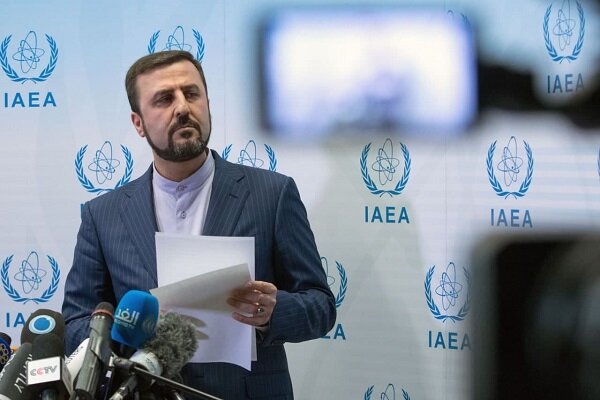In a series of tweets on Tuesday, Kazem Gharibabadi reacted to the recent remarks of Rafael Grossi and his report on safeguards, saying, "@rafaelmgrossi positions show the biased approach of the Secretariat vis-à-vis its interactions with Iran, which ignores the level of cooperation and engagement. This approach could turn into an obstacle for future good-will interactions between the two sides."
Stating that the International Atomic Energy Agency report is inconsistent with records of cooperation between Iran and the Agency, he added, "This report is also not credible, as it is not based on reliable sources, nor is it convincing, as it does not reflect all aspects of the cooperation and progress made."
"Constructive engagement requires positive environment, avoiding expressing any pre-judgment and artificial concerns, as well as unnecessary overstatement of a few trivial issues. The Agency shouldn't act as if it's supporting the political agenda of some against the others," he underlined.
"The Agency has to distance itself from any political agenda and must take a clear stand on Israeli regime nuclear threat and unacceptability of it remaining outside the NPT and its continuing defiance to place all its nuclear activities and facilities under safeguards," the Iranian diplomat said.
The Director-General of the International Atomic Energy Agency (IAEA) Rafael Grossi claimed on Monday that no progress had been made in resolving safeguards issues with the Islamic Republic of Iran.
The head of the world nuclear watchdog added that the lack of progress in clarifications on the part of Iran on the IAEA's questions about the accuracy and comprehensiveness of Iran's safeguard statements seriously affects the body's ability to ensure that the nature of Iran's nuclear program is peaceful.
Grossi has made claims about what he called undeclared nuclear activities in places in Iran.
In accordance with a piece of legislation approved by the Iranian parliament in early December last year dubbed “Strategic Action to Lift Sanctions,” Iran temporarily suspended the implementation of the Additional Protocol, but later Iran nuclear agency(AEOI) and the world agency reached a three-month agreement to continue the IAEA inspections of Iranian nuclear sites. And the inspections agreement have been recently extended for a month amid nuclear talks in Vienna between Iran and the nuclear participants in the JCPOA.
Iran agreed in good faith with IAEA that surveillance cameras in some nuclear facilities should be kept out of the access of IAEA inspectors for up to three months.
According to the IAEA agreement with Iran, if US sanctions were lifted within three months, Iran would provide the CCTV data to the IAEA, otherwise, the recorded data would be deleted forever. The three-month agreement ended last week, and as a result of consultations, the Islamic Republic once again showed goodwill to extend the recording of camera data for one month until June 24.
ZZ/FNA14000318000016
